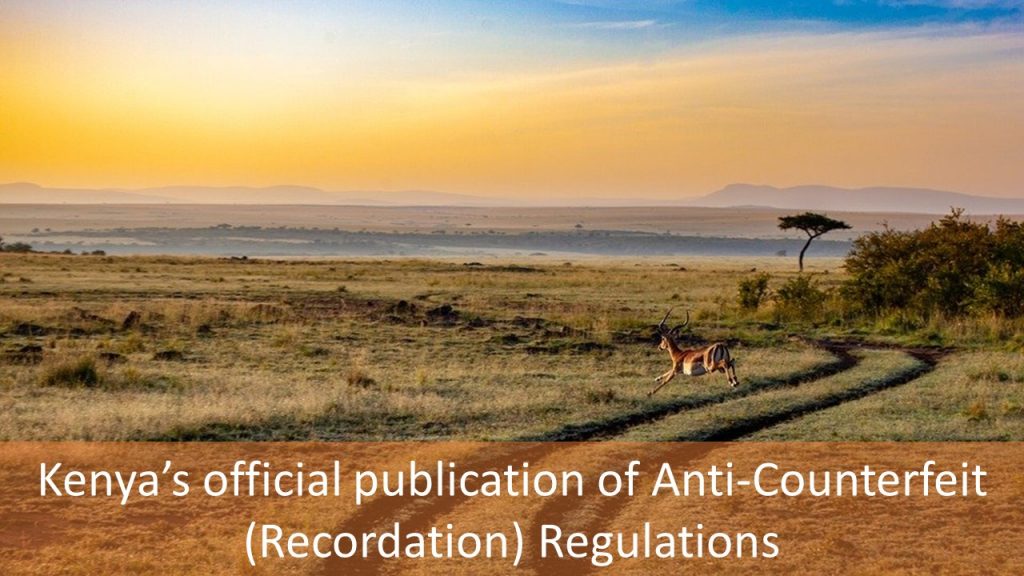In exercise of the powers conferred by Section 37 of the Anti-Counterfeit Act, the Cabinet Secretary for Industrialization, Trade, and Enterprise Development of Kenya has published the Anti-counterfeit (Recordation) Regulations, 2021.
The Anti-Counterfeit Agency of Kenya
The Anti-Counterfeit Agency (ACA) was established under the Anti-Counterfeit Act 2008 as a State Corporation with the mandates to enlighten and inform the public on matters relating to counterfeiting, combat counterfeiting, trade, and other dealings in counterfeit goods, devise and promote training programs to combat counterfeiting and co-ordinate with national, regional or international organizations involved in combating counterfeiting.
The Anti-Counterfeit Agency is a state corporation currently within the Ministry of Industrialization. Although the Act was passed by Kenya’s Parliament in 2008, it came into force on 1st July 2009 with the principal aim of prohibiting trade in counterfeit goods. The Agency came into operation in June 2010.
Kenya’s official publication of Anti-Counterfeit (Recordation) Regulations
Working on the principle of combat counterfeiting and create a safe environment for businesses and consumers, the ACA has been working closely with industry stakeholder representatives over the last 2 years to develop the Anti-counterfeit (Recordation) Regulations to guide the implementation of a new customs record system in Kenya.
These Regulations are available in “The Anti-Counterfeit (Recordation) Regulations, 2021” in the 30 July edition of the Kenya Gazette as legal notice 118 of 2021. With these Regulations, Kenya is expecting many different changes to the system, include:
- The compulsory recordation by IP Rights holders of any goods coming into Kenya in which IP rights are involved.
- 3rd parties (non-rights holders) who import goods into the Kenyan market must notify the ACA of the details of those goods.
- Recordation of raw materials is exempted.
- The records must be renewed each year.
Furthermore, due to the rapid development of the technology as well as the current demand in the market and the situation in the world, the ACA has indicated that they have plans to have the recordation system function via an online platform. With the online recording system, the process to record applications, maintenance of the IPR records database, and case management will be 100% online and can be managed with ease.
Accordingly, if the need arises urgently, the ACA will have the means to be able to identify counterfeit goods and alert IPR holders through their registered local agents or directly through the contacts listed in the recordation applications promptly, reducing the communicating time on both sides and at the same time, improve the performance of ACA.
At the moment, the ACA has inquired all local Kenyan agents operating on behalf of IPR holders to register with them in order to receive further information and future updates on the rollout of the new system.
You can see a list of Kenya IP firms here.

